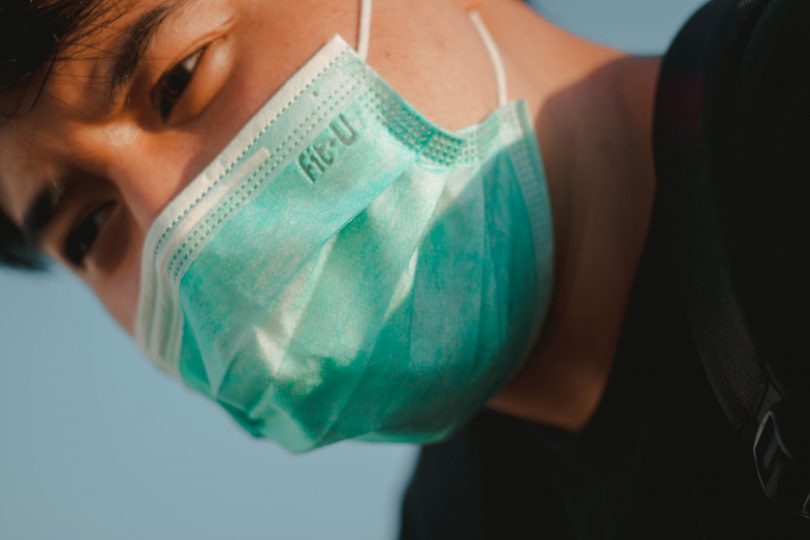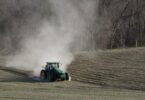By Saumya Rastogi
Boston University News Service
Omicron, or B.1.1.529, the latest COVID-19 variant named by the World Health Organization, is crossing borders fast and has the potential to add to the struggles of countries still dealing with the Delta variant.
“Early evidence shows that it poses a rising risk that individuals who had already had COVID-19 could catch it again,” the WHO stated on their website.
First flagged in parts of Africa, including Botswana and South Africa, earlier this month, the exact origins of the new variant are still being pinned down, with new reports suggesting it may have originated in Europe.
Countries are requiring restraints or bans on travelers from certain countries, actions that South African President Cyril Ramaphosa claimed to be deeply disappointing. Some governments are also reimposing safety measures like mask mandates, which some hoped were a thing of the past.
In the U.S., Anthony Fauci, the chief medical adviser to the president, noted it would take about two weeks to have more reliable data on the transmissibility, severity, and other aspects of the variant.
The Centers for Disease Control and Prevention plans to toughen coronavirus testing and screening for foreign tourists entering the United States by asking them to provide a negative result from a test taken within 24 hours of departure.
Meanwhile, U.S. travel restrictions on southern Africa have come into effect as the Biden administration attempts to address concerns. They are banning travel from Botswana, Eswatini, Lesotho, Malawi, Mozambique, Namibia, South Africa and Zimbabwe.
Other moves from the White House have included President Biden calling on Americans to get fully immunized and use masks indoors. But, he said that further lockdowns were “off the table” for now. He added that the variant is a cause for concern, not panic.
Countries where Omicron has reached
Governments in the European region race to understand the scale of its spread as they have discovered their first cases of the Omicron variant. These include Austria, Belgium, Denmark, France, Germany, Italy, the Netherlands, Norway, Spain, Sweden and the United Kingdom.
Other countries facing the variant are Botswana, Brazil, Czech Republic, Hong Kong, India, Israel, Nigeria, Portugal and Saudi Arabia. South Africa has the highest number of cases at 77.
The U.S. reported the first Omicron case in California on Dec. 1, 2021. The following map shows countries with confirmed Omicron cases as of Nov. 30, 2021.
The exact number of Omicron cases across the globe is likely to be far more.
What do we know about the new variant?
Scientists around the world are still gathering information on four essential parameters:
- How fast the variant spreads.
- If Omicron is able to cause more severe disease.
- Whether it might be able to avoid the immune protection left behind by former SARS-CoV-2 infections
- Whether COVID-19 vaccines or immune-focused therapies such as monoclonal antibodies can evade the new variant.
All are risks because of the number of mutations Omicron seems to have picked up, which is more than 30.
If Omicron moves even quicker than its antecedents, we could be in for another serious pandemic wave.
Based on initial data seen in South Africa, the Omicron COVID-19 variant is spreading faster than the Delta variant, said Salim Abdool Karim, an epidemiologist and previous head of South Africa’s Ministerial Advisory Committee on COVID-19 to CNN.
Karim informed CNN that there’s still a lot to uncover about the traits of the variant, and it will be a couple of weeks until more answers are clear.
“The reality is we’ve only known about this virus for just over a week, so we don’t have the kind of data required to answer those questions definitively,” Karim said.
While little is perceived about the new variant and investigations are underway, he said there are a few things that we can expect.
He told CNN that Omicron has mutations that are similar to the other four variants of concern.
“So, it has mutations that are almost the same as the Delta variant,” Karim said. “So, we are expecting it to spread faster.”
Will vaccines work to prevent Omicron?
Vaccine makers have already declared plans to examine their shots’ effectiveness against the new variant, with data to appear in the coming weeks, and search for new dosing strategies that might help clamp down its spread.
Both in vaccines and natural infections, the variant may spread faster and more easily bypass the body’s immune responses than previous virus variants, experts said in interviews.
The vaccines may continue to prevent severe illness and death. However, booster doses may be required to guard most people. The creators of the two most potent vaccines, Pfizer-BioNTech and Moderna, plan to reformulate their shots if needed.
Tulio de Oliveira, a geneticist at the Nelson R. Mandela School of Medicine in Durban, told The New York Times that in just 36 hours from the first warnings of concern in South Africa on Tuesday, researchers examined samples from 100 affected patients, organized the data, and alerted the world.
Within an hour of the first warning, experts in South Africa also hurried to test coronavirus vaccines against the new variant. Now, dozens of teams globally, including researchers at Pfizer-BioNTech and Moderna, have entered.
They won’t know the outcomes of these tests for two weeks at the least. But the mutations that Omicron carries imply that the vaccines most likely will be less effective, to some unknown extent.
But Omicron also has 26 unique spike mutations, in contrast with the 10 in Delta and six in Beta. Many seem likely to contribute to the variant’s ability to make it difficult for the immune system to identify and prevent the virus.
Moderna could modernize its current vaccine in about two months and have clinical results in about three months if needed, reported Dr. Stephen Hoge, Moderna’s president, to the Times.
Both companies also propose to test whether booster shots will reinforce the immune system enough to defend against the new variant.
Potential Impact of Omicron on Businesses
The news of the Omicron variant appeared to cause the worst Black Friday sell-off on Wall Street since 1931 and a distinct change in mood from Jerome Powell, the chairperson at the Federal Reserve.
Powell was initially hopeful for the economy. But in a prepared congressional testimony that the Federal Reserve posted on its website, he said that the recent rise in COVID-19 cases and the emergence of the Omicron variant creates risks to work and commercial activity.
He added that more significant worries about the virus could decrease people’s willingness to work in person, which would slow the improvement in the labor market and raise supply-chain interruptions.
Before the announcement of Powell’s testimony, the financial markets had bounced back somewhat from Friday’s drop. The Dow Jones Industrial Average grew by more than two hundred points, and the S&P 500 also closed up, reported CNBC. In addition, the value of U.S. Treasury bonds, which are universally considered a refuge during times of market stress, fell behind after posing notable gains before the weekend.
New York State Governor Kathy Hochul announced a state of emergency over the Omicron variant.
“While the new Omicron variant has yet to be discovered in New York State, it’s coming,” Hochul said in her announcement. “We’ve taken exceptional action to limit the spread of COVID-19 and fight this pandemic.”
Companies allowing work-from-home products and services witnessed their prices rise with the expectation that people won’t be returning to their offices anytime soon. According to Barron’s, the investment newspaper, shares of Quidel, which markets a rapid COVID-19 test, surged 10%. Zoom Video Communications was up by nearly 6%, and Peloton Interactive rose 5.7% on Friday.
Investment banks, such as Goldman Sachs, Morgan Stanley, and JPMorgan, that told their people to return to their offices may be obliged to reconsider their in-office demands, reported Forbes.
Workers have been opposing returning to the office. Studies show that people would rather quit their jobs than go back to an office.
Meanwhile, restaurants have not been affected as much yet. As of Nov. 28, reservations at dine-in restaurants have not decreased, according to data from OpenTable, a restaurant reservation company. Overall, in the U.S., reservations on OpenTable are up by 4% and up by 7% globally as opposed to the same day in 2019.
Even without Omicron officially present, Massachusetts is still dealing with an increase in cases
While the Omicron variant has not yet been officially detected in the state, Massachusetts has already been dealing with a stark rise in COVID-19 infections and hospitalizations as of this Thursday. The state reported that 989 people were hospitalized with the virus, which is the highest number as of mid-February.
It also reported 5,170 new confirmed cases, bringing the total to 865,450 COVID-19 cases.
Dealing with the rise of cases in general and looking out for the new variant, state officials are also seeing a high demand for vaccine booster shots.
According to Gov. Charlie Baker, 1 million residents have already received the additional vaccination, with demand reaching as high as 55,000 doses administered a day.








